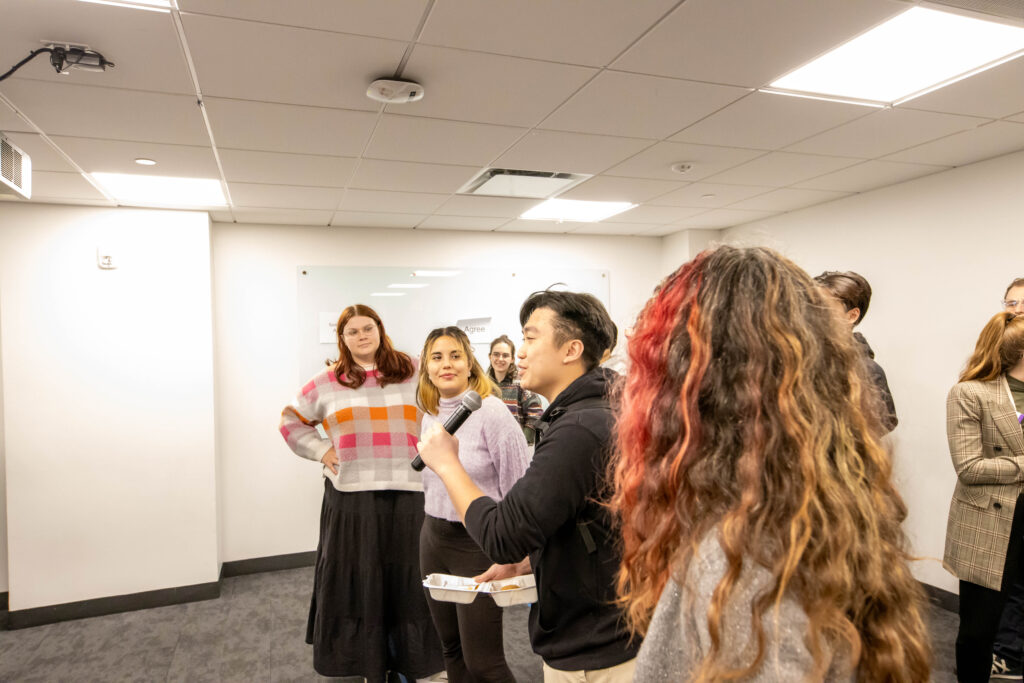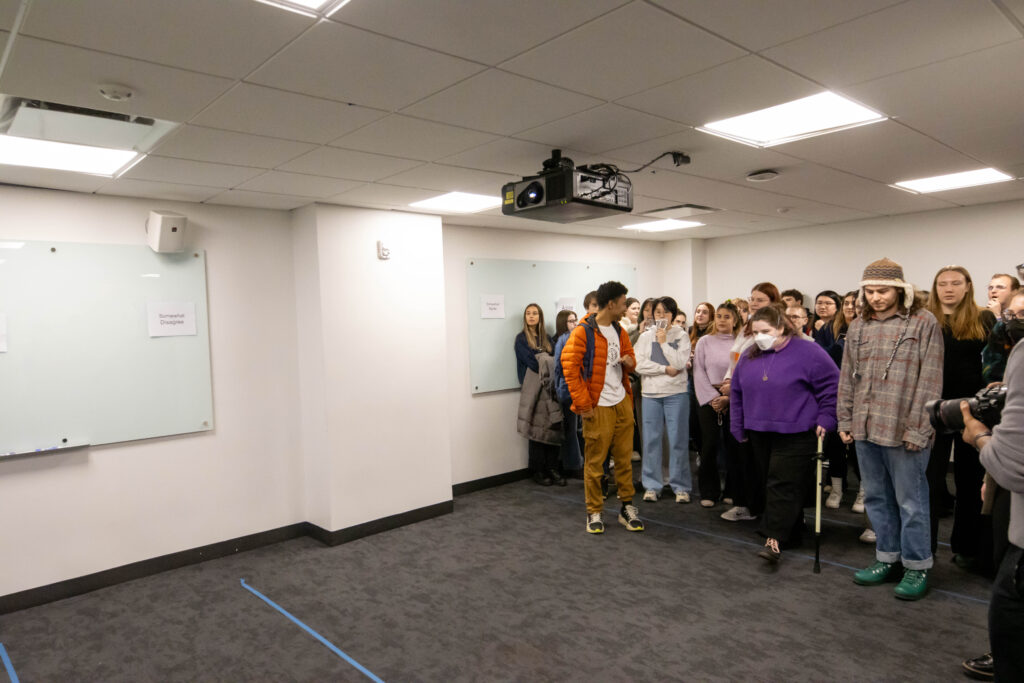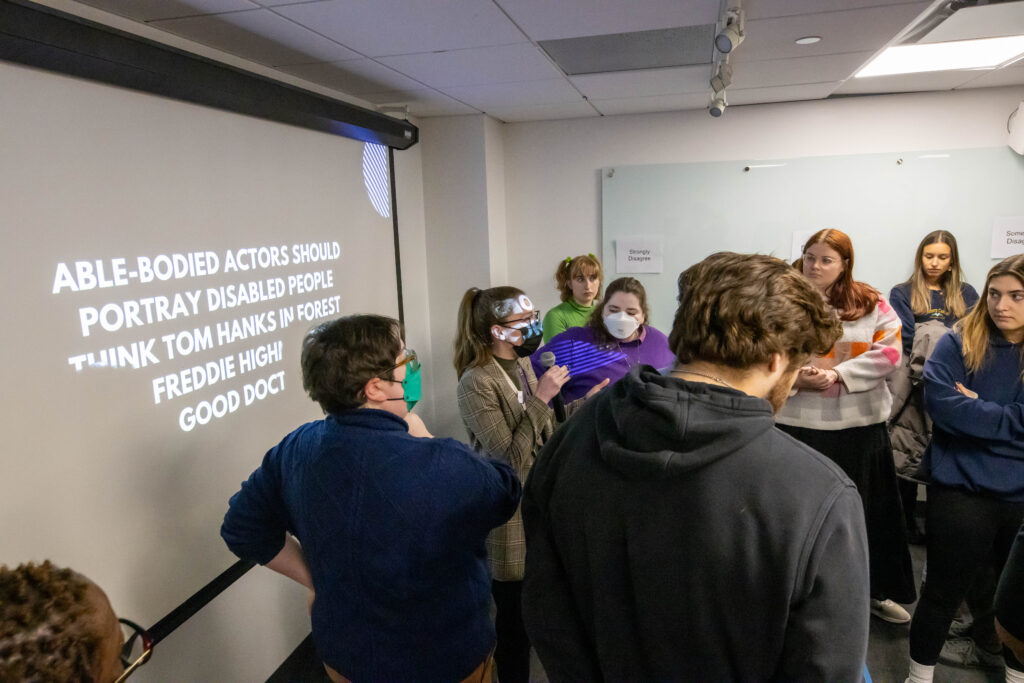Is a Hot Dog a Sandwich? The Importance of Discussion Above Argument

Some would consider a hot dog a sandwich because it’s meat between bread, while others fervently disagree.
In the Teach-In on Race event “Is a Hot Dog a Sandwich?” on Wed., February 7, the Dean’s Fellows for Racial Equity and Leadership Development hosted a jubilee discussion to foster conversations, not arguments, about controversial subjects.
“We started off with silly questions like ‘Is a hot dog a sandwich?’ because it allows people to get into what’s heavy in these harder discussions without having to feel intimidated,” said Dean’s Fellow Meggie Phan ‘24.
In the jubilee discussion, participants moved around the room depending on whether they agreed or disagreed with a statement. To kick off the discussion, the prompt “A hot dog is a sandwich” was displayed on the board, and while most participants flocked to the “Disagree” half of the room, some stayed on the “Agree” side and stood their ground.

Fellows then came to each side with a microphone to allow people on both sides of the room to share their opinions and feelings about the debate. As the discussion progressed, so did the weight of the questions. After the unfruitful hot dog dialogue, participants were also asked to agree or disagree with the following prompts:
- Do race, gender, and socioeconomic status intersect?
- Should able-bodied actors play disabled roles?
- People only care about cultural appropriation online and not in person.
- Fusion food, like “sushi tacos” is cultural appropriation.
- White American rappers are culture vultures.
- The media portrays my community accurately.
- Race impacts peoples’ lives more than sexuality.
Each side of the room had a space for people to stand if they somewhat, mostly or strongly agreed/disagreed with each statement.
Emily Stern ’27, said not having a “neutral option” made some decisions difficult, but it reflects reality. She answered “mostly disagree” when asked if her community is accurately represented in the media.
“I just felt that, while I am a white, cis woman, I’m also queer and feel misrepresented as that part of myself,” Stern said. “I think the decision was easier to make because of the answer options, like how they had a “mostly agree” or “mostly disagree” section, because it’s not as black and white as just “agree” and “disagree”.

While taking a stand on controversial issues can be daunting, the organizers wanted to make the event educational and accessible.
“We wanted to choose something that is easy for people to access and get into,” Phan said. “The point of the Teach-In is to bring people in, and that’s what we hope with this low-barrier entry.”
The question remains: Is a hot dog a sandwich? The answer is that it could be, depending on who you ask.
Categories